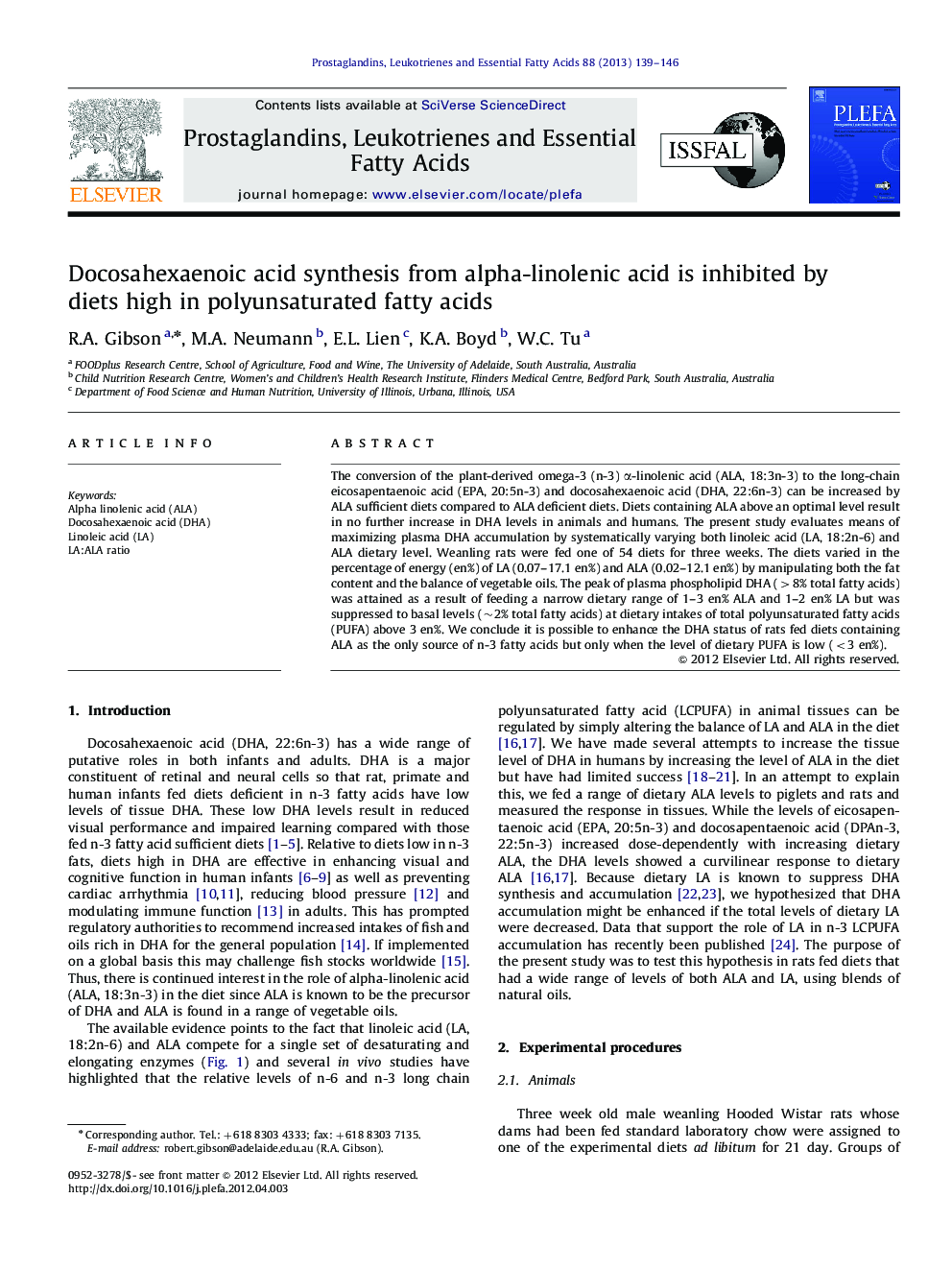| کد مقاله | کد نشریه | سال انتشار | مقاله انگلیسی | نسخه تمام متن |
|---|---|---|---|---|
| 5888567 | 1152748 | 2013 | 8 صفحه PDF | دانلود رایگان |
The conversion of the plant-derived omega-3 (n-3) α-linolenic acid (ALA, 18:3n-3) to the long-chain eicosapentaenoic acid (EPA, 20:5n-3) and docosahexaenoic acid (DHA, 22:6n-3) can be increased by ALA sufficient diets compared to ALA deficient diets. Diets containing ALA above an optimal level result in no further increase in DHA levels in animals and humans. The present study evaluates means of maximizing plasma DHA accumulation by systematically varying both linoleic acid (LA, 18:2n-6) and ALA dietary level. Weanling rats were fed one of 54 diets for three weeks. The diets varied in the percentage of energy (en%) of LA (0.07-17.1 en%) and ALA (0.02-12.1 en%) by manipulating both the fat content and the balance of vegetable oils. The peak of plasma phospholipid DHA (>8% total fatty acids) was attained as a result of feeding a narrow dietary range of 1-3 en% ALA and 1-2 en% LA but was suppressed to basal levels (â¼2% total fatty acids) at dietary intakes of total polyunsaturated fatty acids (PUFA) above 3 en%. We conclude it is possible to enhance the DHA status of rats fed diets containing ALA as the only source of n-3 fatty acids but only when the level of dietary PUFA is low (<3 en%).
Journal: Prostaglandins, Leukotrienes and Essential Fatty Acids (PLEFA) - Volume 88, Issue 1, January 2013, Pages 139-146
